
How To Travel Cuba Responsibly (2024 update)
If there’s one thing that’s been bugging me increasingly for the last few years, it’s people being idiots when travelling to Cuba.
Many think of the island as nothing but classic cars and beautiful beaches. They come here exclusively to just get their cute pic to post on Instagram. But please – Cuba needs so much more attention and care than that.
I’ve outlined the basics of responsible tourism in Cuba below, and really, it applies to any country you’re travelling to.
Some posts on this site contain affiliate links, meaning if you book or buy something through one of these links, I may earn a small commission (at no extra cost to you).
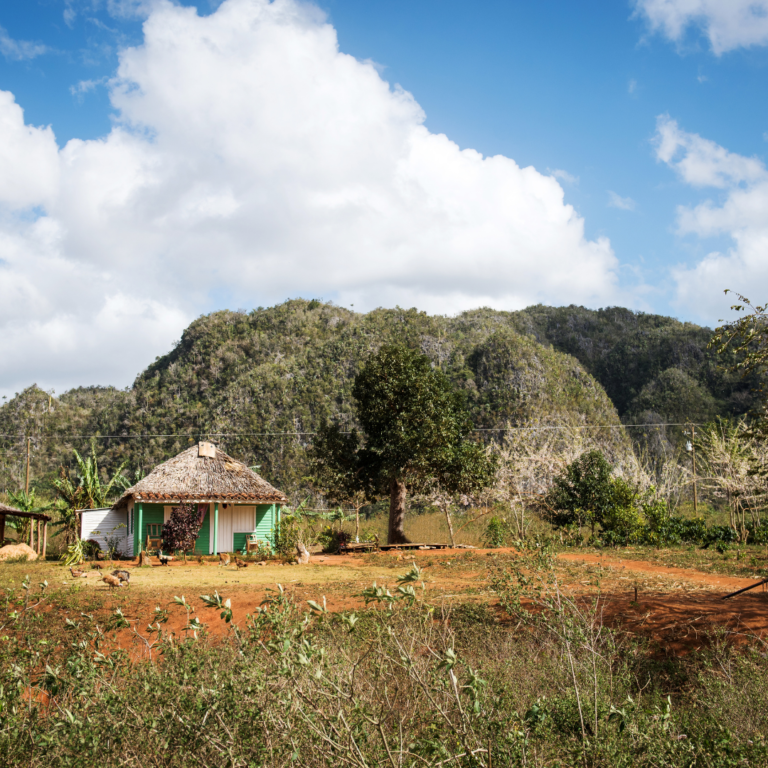
Responsible Tourism in Cuba: travelling responsibly and ethically
During my years living in Cuba, I spent a lot of my time meeting tourists from all around the world. Sadly, I’ve picked up some real resentment for people who don’t travel responsibly in Cuba.
I’ve had incomprehensible and totally infuriating conversations and experiences with tourists that have led me to where I am now: frustrated and determined to rant about it.
From tourists leaving the A/C on all day long in an island that already has a suffering electrical grid (and, you know, climate change), to getting angry at the host when there’s no working WiFi in the house, or buying half-litre bottles of water every hour, I’ve got a lot of ammunition.
Of course, Responsible Travel is absolutely a two-way street. In fact, the term refers to both the host and the visitor acting responsibly to further develop and sustain their mutual environment.
The Cubans themselves (including their government) could indeed do with some lessons when it comes to Responsible & Sustainable Tourism, but that’s a little grand for the realms of my ability.
What I can do at this present moment, however, is educate you – the traveller – to prepare you with a deeper understanding of how you should partake in responsible tourism in Cuba to enjoy and care for our exquisite, complex and barmy island.
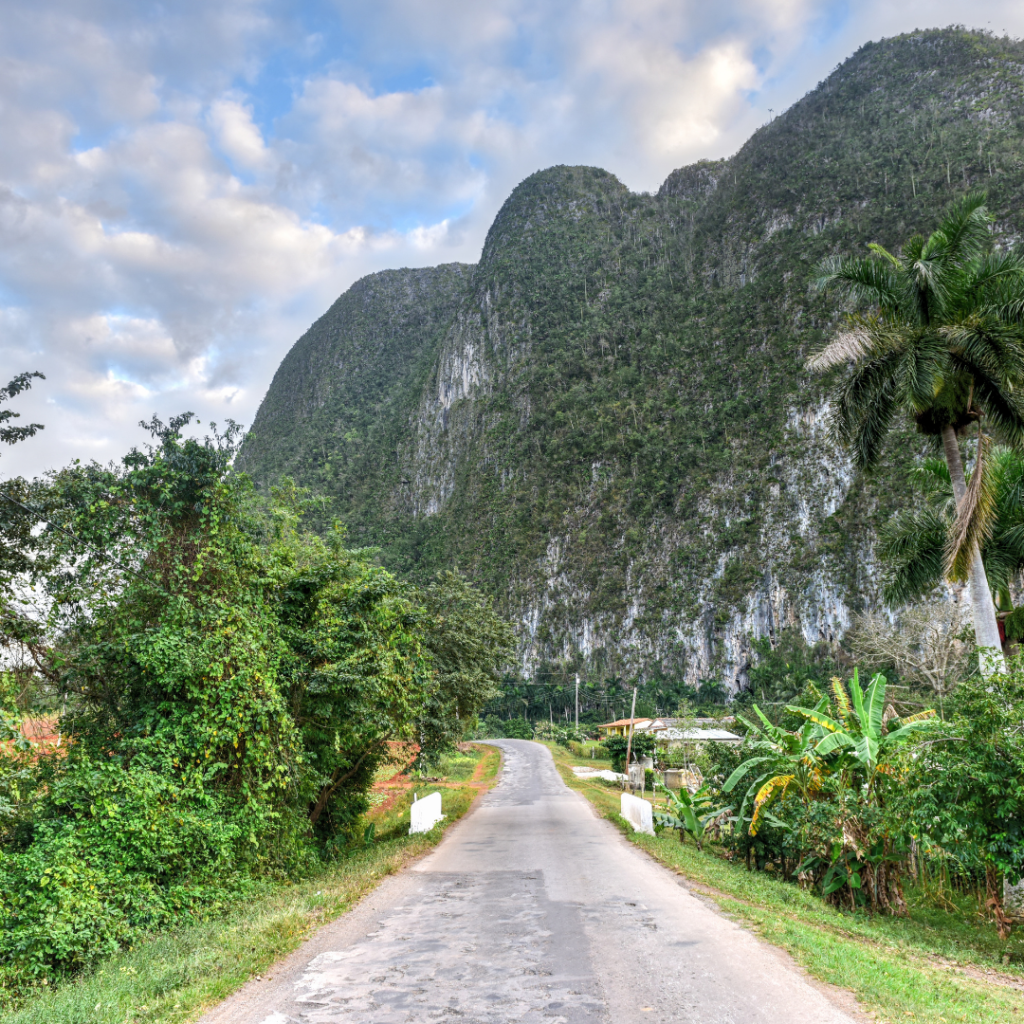
Some basic do's and don'ts:
1. Support the locals & the private sector
This is a huge sweeping statement and crosses many different paths, but I’ll try to keep this simple: support the Cuban people. If you’re coming from America this is mandatory anyway for your visa purposes.
Stay in ‘casa particulares’ (AKA AirBnBs). Long before your mandatory search for Instagram-worthy AirBnB accommodations began, Cuba was already opening their beautiful private homes for tourism. It’s the best way to support the locals directly, receive impeccable service, and get a taste for reality beyond the tourist attractions.
Eat in ‘paladares’ (AKA private restaurants not run by the state). Better food, better service, better customer experience, better for the private sector economy.
Tip well in USD – don’t be stingy. A 10USD tip will make someone’s day (but don’t be fooled that in 2024 that’s a lot! The prices of things for the Cubans have skyrocketed so be as generous as you can)!
Don’t barter – even if you’re a budget traveller, you earn more and work less than these Cubans. Support them. Don’t be ‘that’ person negotiating a few dollars off an already cheap taxi journey.
Bring basic gifts: medication and veterinary supplies are top of my personal list. Toothpaste/deodorant should now go without saying.
2. Recycle & reduce waste
Plastic
Cuba is the master of recycle and reuse. Mainly because they are so limited in resources they have to ‘make do’ with what they’ve got. But you, the tourist, might not share this necessity because you’ve got the extra cash to buy a new bottle of water each hour. But before you do, consider this:
Cuba is an island which doesn’t have enough landfill for every person’s holiday-worth of half-litre bottled water. It’s so unnecessary and please don’t give me the excuse that you can’t drink tap water anywhere but your home country. Not even the Cubans drink tap water here. In any house that you walk into in the city or rural Cuba, you will find that they drink glorious clean filtered water. Whether it’s been filtered by boiling, put through a filter machine, or even a natural stone filter, it’ll be filtered none the less. They bottle it up in plastic bottles that they’ve saved up and will reuse until their dying day. They pop them in the fridge and bobs your uncle. Clean, fresh and cold water.
At the very least, instead of buying and throwing away half-litre bottles each time, try and find a big 5 litre bottle in the stores. It’s more economical and you can keep it at home and refill a smaller bottle for when you go out.
Also think about bringing your own straws and even some reusable items to gift. In Viñales they were on to bamboo straws before it became a trend. But it’s quite a lot of work for them to find the bamboo and make it useable. If you can bring some to donate, it’ll be most welcome.
Water waste
At home you like to indulge in a luxurious, long hot shower to start or end your day. Water pressure is fine if not great. You like to leave in your conditioner for the full 3 minutes whilst you deep exfoliate your face. Me too!
But we really shouldn’t. And especially in a country like Cuba, where frankly there just isn’t a stable enough water supply to warrant your abuse.
I recently read a great and recent article by Sanne Derks for The New York Times where she followed local workers to get to grips with the reality of Cuba’s water supply. It’s worth a read, and the photos are wonderful too.
It’s not uncommon for Cubans to go days without water. I’ve been through it too many times to count and it’s not easy. They are savvy to it by now, of course, and store back-up tanks of water, or tip-off the water man to deliver an extra tank. But it’s not an easy way to get through life.
Whilst you’re paying to stay in a ‘casa particular’ (AKA AirBnB), you might not necessarily twig that there’s a huge lack of water. The host most likely won’t tell you because of their pride and they want a good review from you. But the lengths they often go through to ensure you can bathe in your luxuriousness really isn’t fair and you should be aware of it.
3. Respect & learn
Responsible tourism in Cuba doesn’t just stop at physical environmental issues. It also involves being culturally sensitive, creating respect between the tourist and the host.
A huge bug bear of mine is when tourists come to a unique and different country such as this, and expect it to be like what they’re used to at home. Why did you even get on the plane?
Learn some of the language before you go.
Take a phrase book. Download apps. You don’t need to be fluent, but a ‘por favor’ and ‘gracias’ go along way. You’re in their country, they shouldn’t be expected to speak your language. It shows respect and you’ll gain a lot from it, too.
Do your research before you arrive.
Read about Cuba. Read about the history and the culture.
Listen to Cuban music.
Don’t insult the local musicians by asking them to play ‘Guantanamera’ on repeat so much so that it dumbs down their talents and repertoire just to please the generic tastes of the tourists.
Don't flash your cash around to the locals
Not because you’ll be in danger, but because you have a lot of foreign money that they have no access to. No one wants to see what they’ll probably never have.
Don't expect the same hospitality attentions that you might get in your home country.
Especially if you’re eating in a state-owned restaurant. The staff are paid on average 3USD a day at most, so can you blame them if they’re not putting their back into it? It’s not right, of course, but you can understand it. So don’t make a song and dance about it.
Tip.
Tip in USD. Tip the cleaning staff. Tip the waiters and waitresses. Tip the kitchen staff. Tip the people on the street you see recycling cans. Tip the musicians even if you didn’t request their accompaniment. Tip everyone because they need it rn.
Give money to those who aren't immediately working in tourism.
They have less access to hard currency, and right now, times are so hard for the locals.
Be mindful of your opinions.
And your ego. Travellers to Cuba often like to believe that they know everything about the island and should be giving their unsolicited “knowledge” on how to “fix” Cuba. Unfortunately, your two week holiday here does not make you an expert. Your surface level opinion will not even scratch the surface on understanding the complexities of this island, even if you think you studied Cuba in school. You don’t know as much as the Cubans who live in their own reality, and you shouldn’t subject them to your belief that the USA is the finest democratic country in the world nor that the American Dream is real.
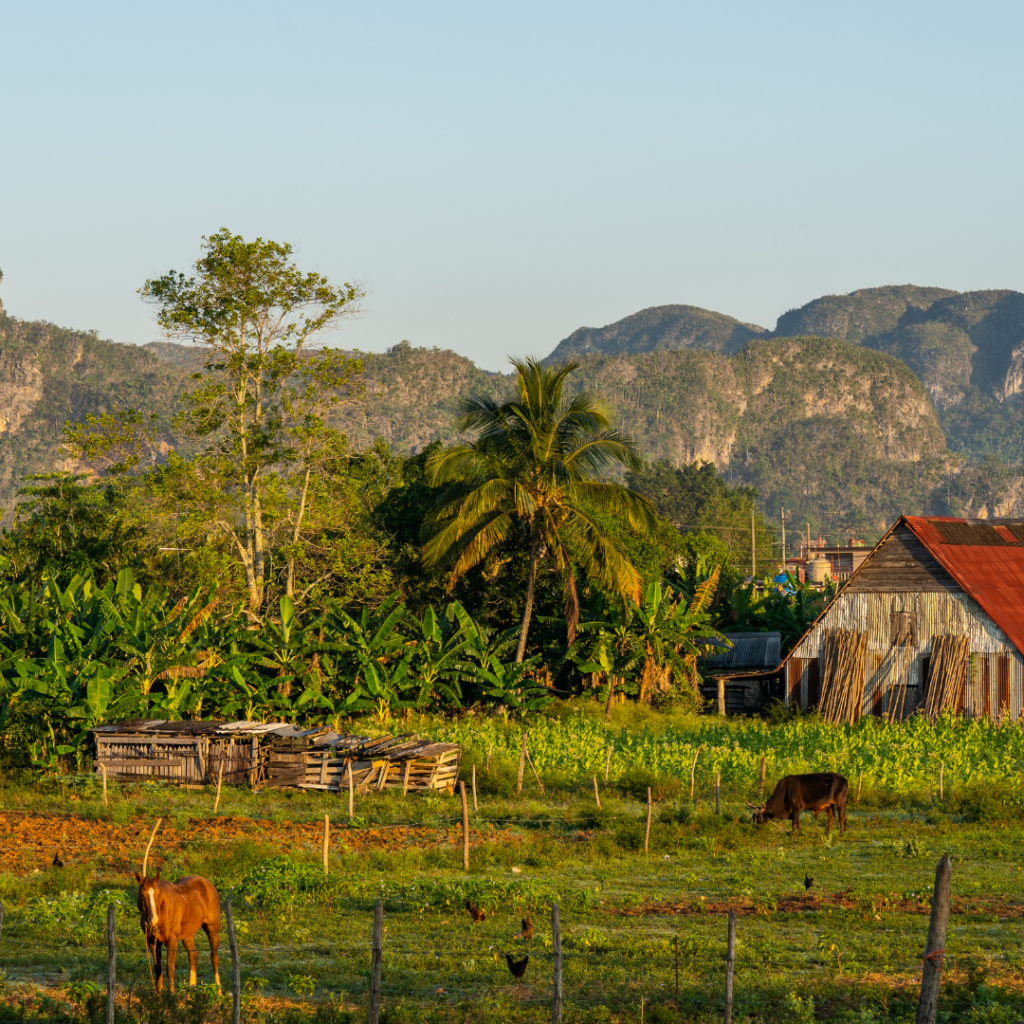
4. Be careful where you travel & how
Avoid animal exploitation
Applicable everywhere and particularly pertinent for Cuba. Until extremely recently (I’m talking this year, 2021) Cuba had no animal protection laws in place. You can imagine the sorry state of affairs of the animals here. I won’t go into details. Thankfully laws have now been implemented after a long struggle. But now the work needs to start in changing the attitude of the Cuban people themselves.
If you involve animals in your tours, please do homework on the tour operator/guide. I have nothing against using horses in tourism. It’s not like injecting sedatives into tigers in Thailand or removing the tusks of elephants. Horses are to be ridden and enjoyed, providing it is managed ethically.
I can tell you from personal knowledge that there is a huge amount of horse mistreatment in Viñales alone. Naturally it is a big hot-spot for tourists coming to ride horses through the tobacco fields, so do it but be mindful. Don’t book your excursion through the owner of your casa without speaking to the guide and seeing the state of the horses first.
If you want my (biased but knowledgeable) advice, my husbands horses are impeccably looked after and he/we only work with other ethical and responsible guides: www.thevinalesexperience.com. We spend far too much money on horse food and medication, and are sure to not overwork the horses especially in the middle of the hot day.
If you want to support other local organisations, please donate/bring supplies for them to use and distribute, and share their pages on social media.
Go beyond the guidebook
Cuba has developed a distinct ‘tourist trail’. Havana – Viñales – Trinidad – Varadero. I support this tourist trail to an extent: it gives you, the traveller, a little bit of everything. Beach, mountains, colonial town, history and countryside. You’ve been saving up for your trip for a long time, so naturally you want to do it well.
However, it’s so easy to get ‘stuck’ in this textbook tour. So many of the blogs on Pinterest and package tours don’t stray from this very beaten track. That means that the same people are benefitting on repeat, and the hard currency isn’t distributed fairly.
Not only that, you’ll spend all your time with other (lost & clueless) tourists rather than the locals. Is that what you really want?
When you’re planning your travels, try to go beyond the guidebook. There is so much magic in Cuba. From extensive experience talking to tourists who arrived in Viñales after having been in Havana, they feel tired. Tired of the ‘hustlers’ following them on the street, grappling for business. Tired of the tourist traps and not finding the ‘magic’ that everyone talks about.
By genuinely exploring a little away from the tourist trail, you’ll have an incredible experience and you’ll be supporting the local underdogs, culturally and economically.

Notes on the above
For any critics out there, I’d like to reemphasize my earlier point. I am quite aware that the Cubans themselves need a good education on being ‘responsible’ in their own country. So often it is indeed themselves who are littering, abusing the A/C (I speak for my own husband who is obsessed with having it on at all hours of the day when we rent somewhere) or treating tourists disrespectfully.
I don’t like to lay blame, as it isn’t directly the fault of the Cubans. They have lacked direction and education on this topic from their government and subsequently it is hard to ‘unlearn’ decade-old habits.
But if you – the responsible traveller – go to Cuba and can steadily promote ‘living responsibly’, and you have one conversation with grandpa in his casa particular about the reasons behind why he shouldn’t throw his plastic bottle out the car window, you’ve done your bit.

Have I missed anything? Let me know in a comment below. I’m always looking for new ways to carry out and promote responsible tourism in Cuba, or indeed anywhere I go.
Did you find this post interesting or useful? I’d love for you to support me and share it.
Pin and save this blog post for later
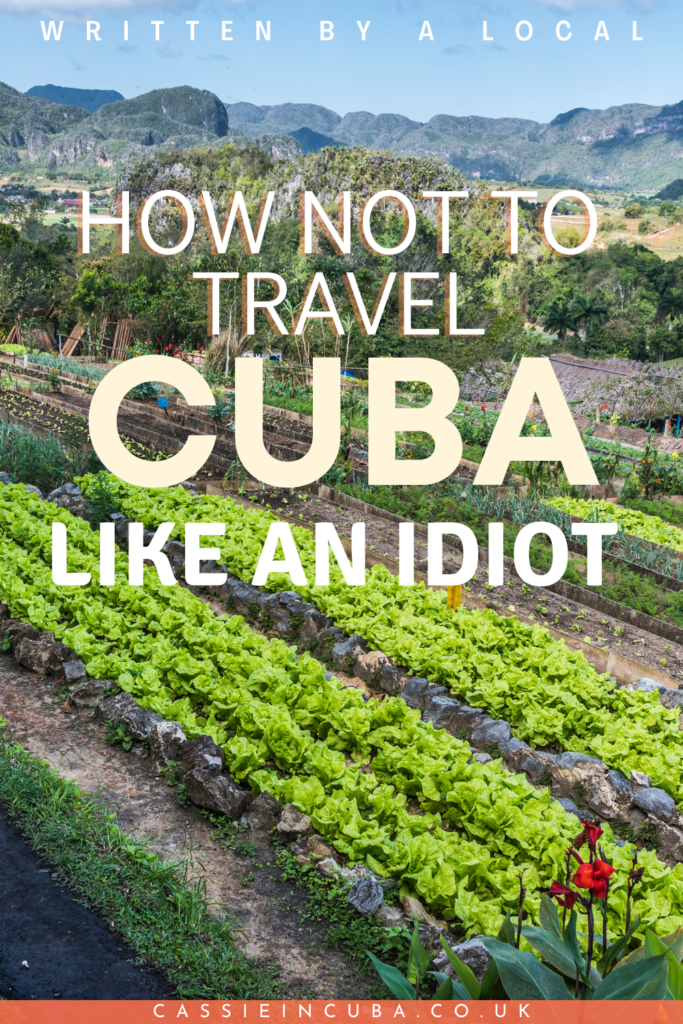
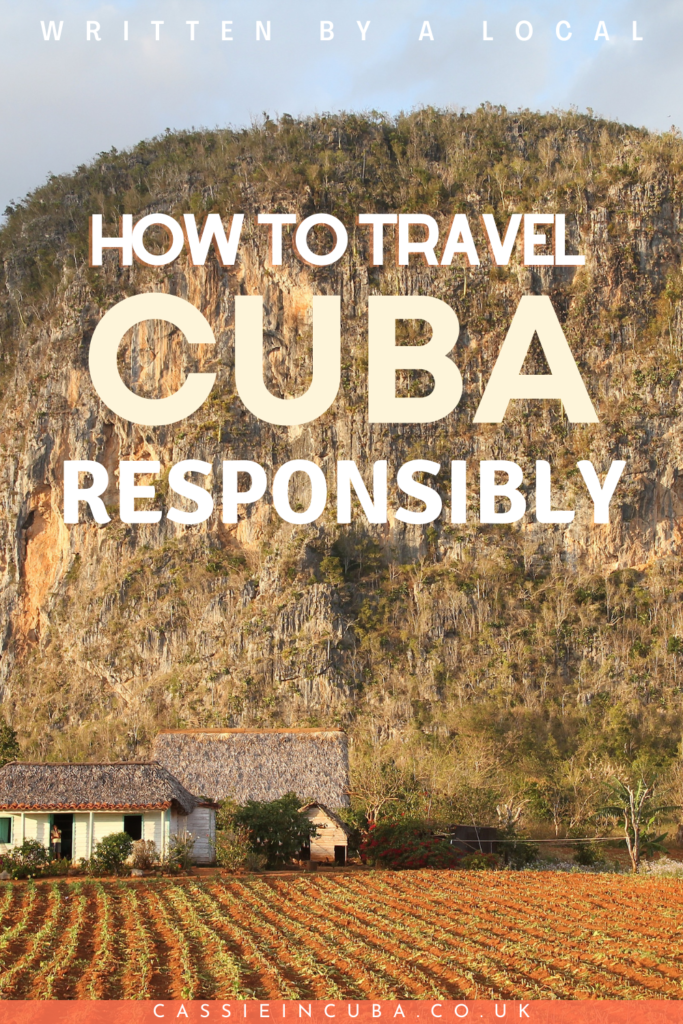


You May Also Like
